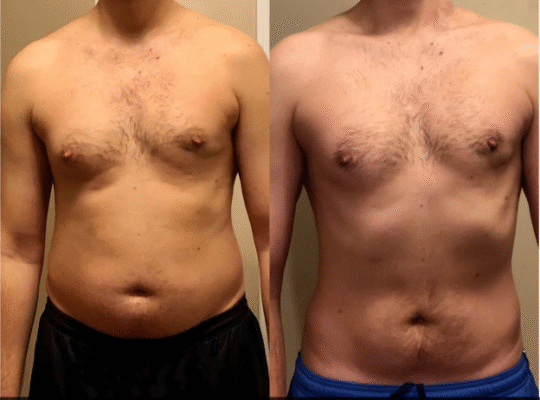Burnout is something many people experience without realizing it at first. It sneaks in quietly through constant stress, long hours, and the pressure to meet every demand, whether at work, school, or home. Eventually, it can leave you feeling drained, unmotivated, and disconnected from the things you once enjoyed. The good news is that burnout can be recognized, understood, and overcome with the right mindset and habits. This article will walk you through what burnout is, how to identify its signs, and practical ways to recover and protect your well-being.
Understanding Burnout
Burnout is more than just being tired. It is a state of physical, emotional, and mental exhaustion caused by prolonged stress and overwork. When people are constantly under pressure without enough rest or support, they can reach a point where their body and mind feel completely depleted. Burnout was first studied in the context of workplace stress, but it can affect anyone—students, parents, caregivers, entrepreneurs, or anyone juggling multiple responsibilities.
Unlike ordinary tiredness, which can usually be relieved with a good night’s sleep, burnout creates a deeper sense of fatigue. You may feel like no amount of rest is enough. It often comes with feelings of helplessness, hopelessness, and disconnection. Recognizing that burnout is not a sign of weakness but rather a response to overwhelming circumstances is the first step in moving forward.
Common Signs of Burnout
Because burnout develops gradually, many people ignore its early signals until it becomes severe. Learning to recognize these signs can help you take action before things get worse. One common sign is chronic fatigue that does not go away with rest. You may feel exhausted in the morning even after a full night’s sleep. Another sign is irritability and frustration, where even small tasks or interactions feel overwhelming.
Loss of motivation is also a major indicator. If you once loved your work, studies, or hobbies but now feel indifferent or resentful, burnout could be the cause. Physical symptoms can also show up, such as headaches, stomach problems, or frequent illness due to a weakened immune system. Emotionally, you might feel detached, unproductive, or unable to concentrate. Together, these signs signal that your mind and body are asking for relief.
Emotional Impact of Burnout
One of the most difficult parts of burnout is how it affects your emotions. Many people report feeling numb, disconnected, or cynical about life. Others feel anxious or overwhelmed at even small responsibilities. It is common to doubt yourself, thinking you are not good enough or that you will never catch up. This emotional toll can damage confidence and make ordinary challenges feel impossible.
Relationships also suffer. Burnout can make you withdraw from friends and family, either because you are too tired or because you do not have the energy to engage. Over time, this isolation deepens feelings of loneliness and sadness. Recognizing the emotional impact of burnout helps you realize it is not just about stress—it is about how ongoing strain reshapes your perspective on life.
Causes of Burnout
Burnout does not happen overnight. It builds over time when demands outweigh your resources. A common cause is workload, such as long hours, tight deadlines, or responsibilities that never seem to end. Lack of control is another factor. When people feel they have no say in decisions or schedules, stress intensifies. Unclear expectations can also lead to frustration because you never know if you are doing enough.
Other causes include poor work-life balance, where personal time is constantly sacrificed for professional or academic duties. Perfectionism can play a role as well. When you expect yourself to be flawless in every area, you place unrealistic pressure on yourself. Finally, lack of support—whether from colleagues, supervisors, or loved ones—can leave you feeling alone in carrying heavy burdens. Each of these factors contributes to the gradual depletion of energy that defines burnout.
The Difference Between Stress and Burnout
It is important to distinguish between ordinary stress and burnout. Stress is a normal reaction to challenges, and in short bursts, it can even be motivating. For example, preparing for a big presentation may cause stress, but once it is over, you feel relief. Burnout, however, is what happens when stress is constant and unrelenting. Instead of bouncing back, you feel stuck in exhaustion and negativity.
Think of stress as a state of over-engagement—too much activity, too many thoughts racing at once. Burnout is under-engagement—feeling empty, detached, and unable to care. Knowing this difference can help you respond appropriately. Stress might require rest and short-term adjustments, while burnout demands deeper changes in lifestyle, mindset, and priorities.
Recognizing Early Warning Signs
Catching burnout early makes recovery easier. Ask yourself if you often feel dread before starting your day, even when nothing specific is wrong. Notice if you avoid tasks you used to handle with ease. Pay attention to whether you feel emotionally flat or numb. If you keep telling yourself to “just push through” without addressing the underlying issue, that could be a sign of trouble.
Other early warnings include declining performance, frequent mistakes, or forgetting things because your mind feels overloaded. Your body may also signal you through constant tension, insomnia, or stress-related pain. When these signs appear, it is wise to pause, reflect, and adjust before burnout takes a firmer grip.
Practical Ways to Overcome Burnout
Overcoming burnout requires both immediate relief and long-term changes. Rest is an essential first step. Allow yourself to take breaks without guilt. Sometimes a short pause, such as a walk outside or a weekend off, can help restore energy. But deeper recovery often requires reevaluating your priorities. Ask yourself which tasks truly matter and which can be reduced or delegated.
Another powerful strategy is setting boundaries. If you are constantly available to others, whether by email, phone, or social obligations, you never have time to recharge. Learn to say no to extra responsibilities that are not essential. Building healthy daily routines also helps. Regular sleep, balanced meals, and exercise give your body the foundation to recover. Even small practices, such as drinking enough water or stretching, make a difference.
Emotional renewal is equally important. Engage in activities that bring joy, whether reading, listening to music, or spending time with loved ones. Talking to a trusted friend or counselor can lighten the emotional load. Journaling is another helpful tool, as writing down your feelings often provides clarity. Over time, these practices rebuild your energy and remind you of what makes life meaningful.
The Role of Mindset
While practical changes matter, your mindset also influences recovery. Burnout can make you feel powerless, but shifting how you see challenges restores hope. Practice self-compassion by reminding yourself that it is okay to rest and that you do not need to be perfect. Celebrate small victories instead of focusing only on what is undone. Gratitude practices can also help, such as writing down three things you appreciate each day.
Reframing your perspective on setbacks is powerful too. Instead of seeing them as failures, view them as opportunities to learn. This reduces the pressure of constant achievement and encourages growth. With time, cultivating a positive mindset reduces the likelihood of falling back into burnout.
Long-Term Prevention
Preventing burnout in the future means building resilience into your daily life. Prioritize balance by ensuring work, rest, and play all have their place. Stay connected with supportive people, since relationships are a buffer against stress. Regularly check in with yourself to see if you are pushing too hard or ignoring your needs. Adjust early instead of waiting until exhaustion takes over.
It also helps to pursue meaning in your work or studies. When tasks align with your values, they feel less draining. If possible, focus on projects that excite you or make a difference. Continuous personal growth, whether through hobbies, learning, or new challenges, keeps life engaging. By creating a lifestyle that nurtures your energy, you build a shield against burnout.
The Healing Power of Rest and Recreation
Recovery is not only about reducing work but also about adding joy. Recreation, in its true sense, means re-creating yourself. This could be as simple as spending time in nature, enjoying a hobby, or laughing with friends. Playfulness is not just for children; adults also need fun to release tension and spark creativity. Activities that absorb your attention, such as painting, gardening, or cooking, can refresh the mind.
Rest is equally vital. Quality sleep is one of the most powerful tools against burnout, as it allows the brain to process stress and repair itself. Establishing calming bedtime routines, such as reading or meditating before sleep, supports deep rest. Together, rest and recreation form the foundation of long-term resilience.
Finding Professional Help
Sometimes burnout becomes so overwhelming that outside help is necessary. Speaking with a counselor, therapist, or coach can provide guidance tailored to your situation. Professional support helps you untangle complex emotions, identify unhealthy patterns, and find effective coping strategies. If physical symptoms are significant, consulting a doctor ensures that your health is protected.
There is no shame in seeking help. Just as you would see a doctor for a broken bone, seeking support for burnout is a step toward healing. The act of reaching out shows strength, not weakness, and can make the recovery process faster and smoother.
Moving Forward with Hope
Burnout can feel like a heavy cloud, but it is not permanent. With awareness, care, and consistent changes, you can regain energy, joy, and purpose. The experience itself can even teach valuable lessons about balance, self-care, and resilience. Many people who overcome burnout emerge stronger, with a clearer sense of what truly matters in life.
As you move forward, remember that well-being is a journey, not a final destination. Stress will always exist, but how you respond to it shapes your quality of life. By listening to your body, protecting your time, and nurturing your mind, you can keep burnout at bay and live with greater peace and clarity.






